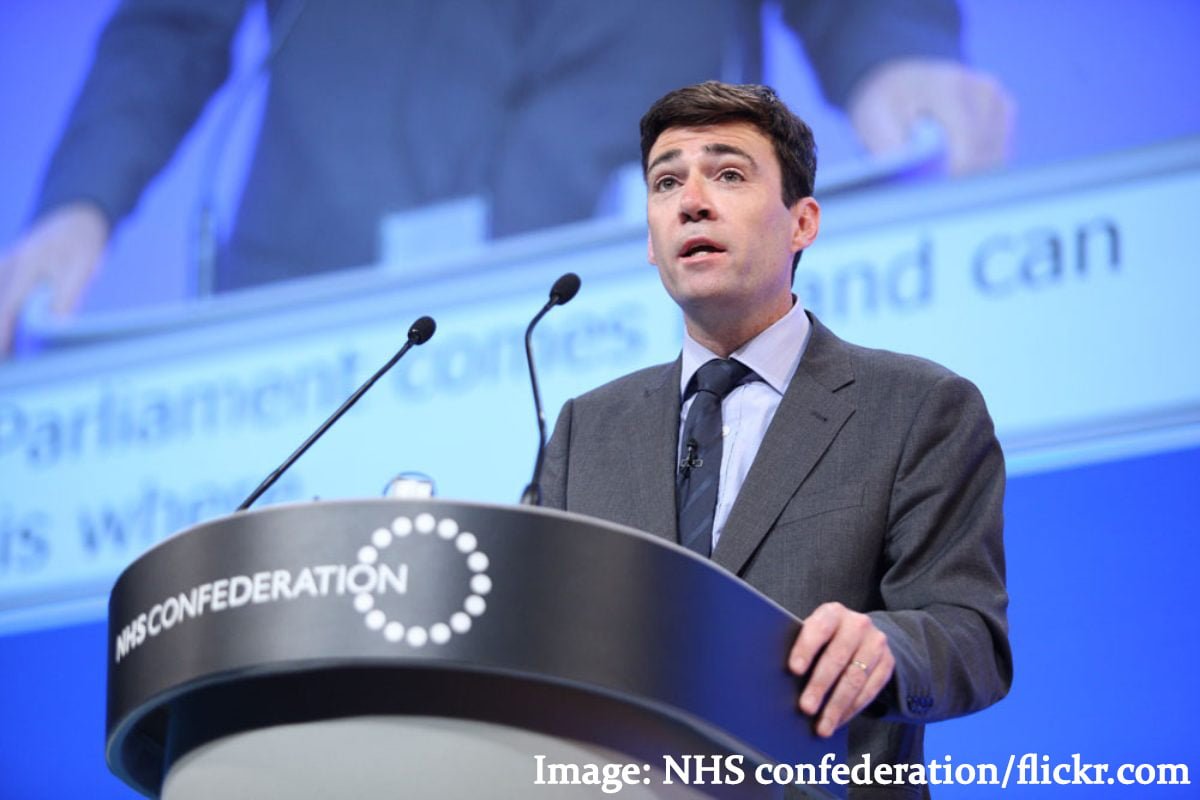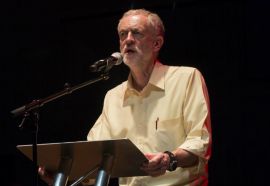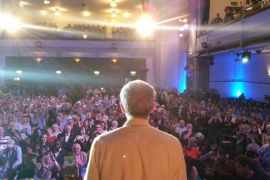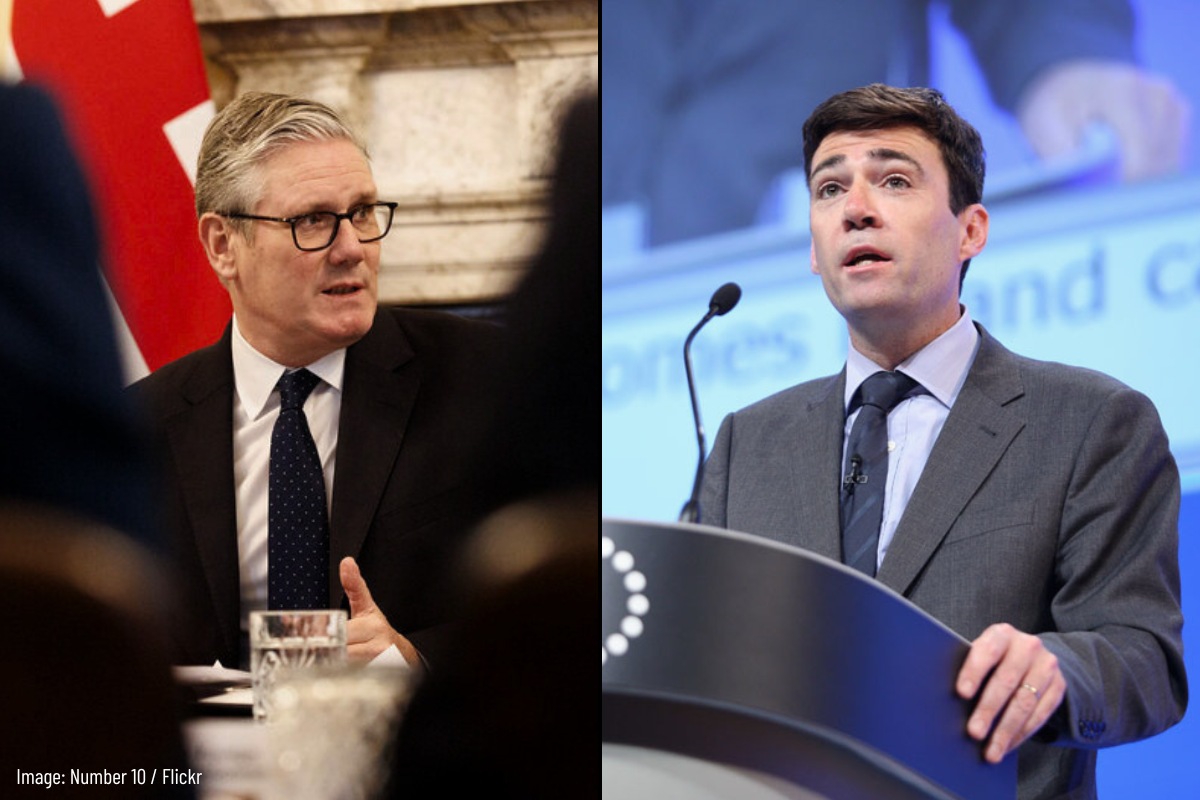The astonishing victory of Jeremy Corbyn for the Labour leadership represents a political earthquake of monumental proportions. It has turned the political map of Britain upside down. Hundreds of thousands of workers and youth, desperate for change, are celebrating this victory all over the country.
The astonishing victory of Jeremy Corbyn for the Labour leadership represents a political earthquake of monumental proportions. It has turned the political map of Britain upside down. Hundreds of thousands of workers and youth, desperate for change, are celebrating this victory all over the country. Michael Meacher has correctly described the Corbyn campaign as “the biggest non-revolutionary upturning of the social order.”
ELECTION RESULT (votes – percentage):
Jeremy Corbyn: 251,417 – 59.5%
Andy Burnham: 80,462 – 19%
Yvette Cooper: 71,928 – 17%
Liz Kendall: 18,857 – 4.5%
Moreover, it represents a massive defeat for the Establishment and their right wing candidates. It represents an overwhelming vote for fundamental change. Not surprisingly, it has set off alarm bells in the boardrooms of the banks and the City of London, fearful of a sharp turn to the left.
Seething anger finds an expression
Jeremy’s victory appeared to come from nowhere. But those with eyes to see could sense an upset like this coming. It is a reflection of a seething anger and bitterness within society, especially since the slump of 2008-9. Socialist Appeal has stated repeatedly that we are in a period of sharp and sudden changes. The Corbyn “phenomenon” is just one reflection of this. Even The Financial Times, a mouthpiece of the ruling class, could feel the ground shaking under its feet. In describing this “popular insurgency”, it was surprised that the reaction had “not been bigger.”
“In another age, the 2008 crash might have triggered a revolution”, the FT said. “Instead, Mr Corbyn and his fellow travellers are now capturing the seething popular resentment. They do not have answers. Many simply preach hatred of the outsider. They have understood, though, that something has to give.” (the Financial Times, 10th September 2015)
Well, something has given – big time. “Enough is enough”, say all those who have for too long put up with the ills of the “free market” and its Blairite apologists.
Again, the same article in the big business paper blurted out the truth to its upper class readers: “The brand of unbridled capitalism that hands all the gains of open markets and economic integration to the top 1 per cent, while piling austerity and insecurity on to the rest, is politically unsustainable.”
Absolutely! What an admission. The truth is that whole system has become “unsustainable” and unbearable for millions of working class people.
The spectre of Corbynism
 And now the tables have been turned! The old “Mole of Revolution,” which Karl Marx talked about, had been burrowing away but has now burst through to the surface.
And now the tables have been turned! The old “Mole of Revolution,” which Karl Marx talked about, had been burrowing away but has now burst through to the surface.
“A spectre is haunting the liberal democracies – the spectre of populism – and the political times have the insurrectionary feel of 1848 when Karl Marx wrote that sentence (with a significant difference at the end)”, writes Simon Schama in the Financial Times. “From the stomping exhilaration and fervour greeting Senator Bernie Sanders, Hilary Clinton’s challenger for the Democratic party’s nomination, to Jeremy Corbyn’s appearance among Labour’s sinners as the cleanser of Blairite wickedness, politics has become passionate and the devotees have fire in their bellies and stars in their eyes.” (the Financial Times, 29th August 2015)
This reference to Marx is quite apt. The blind alley of capitalism has produced a new and threatening “spectre”. They call it “populism”. But all that means is a growing revolutionary revolt against the present order. Even Donald Tusk, the head of the European Council, has warned of a new 1968 in Europe.
Only a few months ago, Jeremy was written off as a “no-hoper”, someone allowed on the ballot paper “to broaden the discussion” and nothing more. He had no chance of actually winning! Or so they thought, chuckling to themselves. They believed he would be ditched in the first round of voting, just like Diane Abbott was in 2010. Given this, right-wing MPs were graciously prepared to “lend” him their nomination to allow him to stand, in truth to give the election some creedence. How very much they now regret what they have done. They are not giggling now. Margaret Beckett describes herself as a “moron” for helping the “no-hoper” to stand.
The catalyst for consciousness
The right wing made the blunder of not only letting him on the ballot. That was bad enough. They also widened the franchise to allow Labour “supporters” to vote “to keep out the Left”, as they saw it. They believed their own propaganda that “socialism” was dead and left wing ideas were unpopular. “This expanded democracy is guaranteed to keep the party more in touch with ordinary people”, wrote Lord Mandelson when the new arrangements were voted in.
The only problem was that “ordinary people” had become far more radical than the party, which had drifted far to the right. This opening up of the Labour Party to the working class changed the whole political dynamic.
Once on the ballot, Jeremy became the catalyst for hundreds of thousands who were enormously discontented with the right wing Establishment that controlled the Labour Party. The Blairites had made the party almost indistinguishable politically from the Tories. Tony Blair had created “New Labour”, a brand that became associated with the Iraq war, tuition fees, Tory anti-union laws, and creeping privatisation. No wonder Margaret Thatcher regarded New Labour and Blair as part of her legacy… and she was right. The New Labour hierarchy are correctly now seen as the direct descendants of Thatcherism.
Five million people deserted Labour in these years, especially the youth but also the solid working class areas. As many had said, they had not deserted Labour; the Labour Party had deserted them.
A whole layer of careerists swarmed into the Labour Party, especially from the wreckage of the SDP, who were welcomed back with open arms, despite stabbing the party in the back. Democracy in the party was largely snuffed out and workers were elbowed aside by smart-suited middle class “entryists”. These people were then systematically parachuted into safe Labour seats by the party machine. Blair’s “project” of making the Labour Party “safe for capitalism” was accompanied by a purge of socialists and the scrapping of left wing policies, including Clause Four of the party’s constitution.
Blairite zombies
Corbyn and his supporters represent a threat to this “counter-revolutionary” project. That explains why Tony Blair, Gordon Brown, Peter Mandelson, Jack Straw, Blunkett, Kinnock, etc. all rose up from the political dead to viciously attack Jeremy once the campaign was underway. Blair accused Corbyn supporters of needing a “heart transplant”. Kinnock blamed the surge in support for Jeremy on “malign Trotskyists”. ABC – “Anyone But Corbyn!” became their battle cry. In this, they were joined by the capitalist media, including the “independent” BBC, whose Panorama programme wallowed in the gutter. They were also joined in this attack by the young aspiring Blairites, such as Tristram Hunt, Chuka Umann, and of course Liz Kendall.
Tristram Hunt, the Cambridge academic turned Labour MP, claimed that Jeremy Corbyn was “unelectable”. What a laugh! This accusation is rich coming from someone who was parachuted into a safe Labour seat but just managed to “inspire” a derisory 19% of voters to vote for him in May. He has the grand title of the most unpopular elected MP in Britain. His Blairite politics are responsible for the apathy and disillusionment that has saturated many working class Labour’s heartlands.
In contrast, Jeremy Corbyn’s anti-austerity message has resonated everywhere. A YouGov poll for the Evening Standard, published on 14th August, revealed he was the first choice of ordinary Londoners. A massive 46% thought he would make the best leader. 52% of Labour voters thought he would make the best leader. More startling, 62% of UKIP voters thought the same. Again, this proves that many who voted UKIP did so because they saw it as an anti-establishment party.
 Corbyn, the left wing candidate, represents the anti-Establishment majority. This contrasts with the lack of support for the rest of the leadership candidates who talked about “aspiration” and the need to appeal to the middle ground. Andy Burnham, who was initially touted as the “trade union” candidate, went so far as to say, “In my Labour Party, the entrepreneur will be as much a hero as the nurse.” There was very little difference between these candidates and the Tories.
Corbyn, the left wing candidate, represents the anti-Establishment majority. This contrasts with the lack of support for the rest of the leadership candidates who talked about “aspiration” and the need to appeal to the middle ground. Andy Burnham, who was initially touted as the “trade union” candidate, went so far as to say, “In my Labour Party, the entrepreneur will be as much a hero as the nurse.” There was very little difference between these candidates and the Tories.
Tom Watson said that “Liz Kendall is not a Tory and Jeremy Corbyn is not a Trotskyist.” While it is true Jeremy Corbyn is not a Trotskyist, clearly the Blairite Liz Kendall is seen by everyone as a Tory in all but name.
A yearning for fundamental change
This massive Corbyn victory means the party clearly rejects the right wing agenda. People want a fundamental change in society. As the recent Yougov poll reported, “Corbyn supporters represent a longing for an alternative that has an appeal far beyond the Left of the Labour Party.” This reflects a massive change in the Labour Party and its membership.
However, the Labour Members of Parliament are completely out of step with this change. They reflect the past. Apparently, only 10% of them support Jeremy Corbyn. They firstly tried to rubbish the election process, with Simon Danezuk, explaining anybody could “undermine the party for the price of a Tesco meal deal” and predicted a coup on “day one” if Corby won. There has been much talk of plots to unseat Jeremy or undermine him. Many existing Shadow Cabinet members are refusing to serve in his leadership. That is a good thing.
Tristram Hunt and Chuka Umunna and other right wingers have organised “the resistance” group to challenge a Corbyn leadership. Tactically, they have decided not to remove him immediately but to bide their time. They are very open about this. They are acting like a Trojan Horse, ready to oust Jeremy at the appropriate moment.
As one Blairite complained bitterly, “As a result, the party has been taken over. It is going to take two years of electoral defeats and a lot of hard-thinking and organisation before this can start to be reversed.” (The Guardian, 31/8/15)
However, to remove Jeremy would trigger a new election with the likelihood that Corbyn would stand again and win with a bigger majority. So the right wing suddenly changed their tune and Chuka Umanna issued a statement that “we must all work with Jeremy Corbyn.” They would kill him with kindness instead.
Defend Corbyn! Fight for Socialism!
 What must be done in response to this Blairite threat? To begin with, Jeremy needs to organise all those who voted for him in order to counteract this sabotage from within. As many are young supporters, he should immediately reorganise the Labour Youth into a democratic and socialist youth organisation.
What must be done in response to this Blairite threat? To begin with, Jeremy needs to organise all those who voted for him in order to counteract this sabotage from within. As many are young supporters, he should immediately reorganise the Labour Youth into a democratic and socialist youth organisation.
With Jeremy surrounded by a right wing clique in the Parliamentary Party, things need to change to bring the party’s public representatives in line with the majority support within the party. The idea of change has frightened right wing MPs, who believed they had a safe seat for life. Some have become hysterical. For instance, Dagenham Labour MP Jon Cruddas, who was responsible for the election Manifesto, said: “I’m worried that [a Corbyn-led party] might turn into an early 80s tribute act, a Trotskyist tribute act, which has a culture around it which is very hostile to anybody who disagrees.”
But democracy is democracy. If the party has chosen a left wing leader, then party members are entitled to choose MPs that are more in line with their thinking. What is wrong with that?
Policy making should also be brought back into the hands of the party members through a democratically-elected annual conference which is a decision-making body, not a glorified trade fair.
This election result has placed socialism back on the agenda. Clearly, capitalism has failed. We are in the midst of the biggest crisis of capitalism at least since the 1930s. The implementation of austerity cuts everywhere reflects this one fact. Capitalism can no longer afford the reforms of the past. Instead of reforms, on a capitalist basis, we have counter-reforms. New radical movements are therefore on the rise everywhere, especially in Greece and Spain. This is a reflection of a fury that has emerged as a result of the capitalist crisis of 2008 and is still continuing. This explains what has happened.
We wholeheartedly support the genuine reforms promised by Jeremy. We are all in favour of putting an end to the austerity regime. We want to build more houses, schools and hospitals, as well as increase wages and benefits. We need to offer our young people a real future.
But with the system in crisis and a new slump on the horizon, these things cannot be guaranteed on the basis of capitalism. Even if big business concedes something with one hand, it will take it back with the other.
We must also learn the lessons of past Labour governments. Every attempt to make capitalism work has ended in disaster and the return of the Tories. Even under Blair, who benefited from a world boom, Labour lost five million votes as working class communities were increasingly alienated.
You cannot plan what you don’t control and you don’t control what you don’t own. Every attempt to control the economy has failed. Capitalism only works on the basis of profit. Only by taking over the commanding heights of the economy, the 150 monopolies, banks and finance houses can we run the economy in the interests of working people. To those who say we can’t afford it, we must say that the fat cats have made enough money on our backs. We say nationalisation without compensation. Furthermore, we want our industries run not by bureaucrats but under workers’ control and management.
Once we own and control the main levers of the economy, we will be able to draw up a national plan of production. This socialist planning will allow us to give everyone a job and increase living standards. Putting these resources to use will increase our economic output by more than 20% a year, allowing us to solve the problems we face.
This was the aim outlined in Clause Four of the party’s constitution, abolished by Tony Blair, “to secure for the workers by hand or by brain the full fruits of their labour”. It is time this socialist objective was reintroduced and campaigned for, linking it to increased prosperity for all. Only in this way can we bring about fundamental change. The Labour Party was founded to fight for working people – now under new leadership it must do so with clear socialist policies that break with capitalism. This is the real socialist alternative people are crying out for.
The victory of Jeremy Corbyn is the first step in this direction. We need to carry through this struggle to its conclusion and dump the capitalist system where it belongs – in the dustbin of history. The Marxist tendency in Britain will play its full role in these decisive events.
Defend Corbyn!
Fight for socialism!






